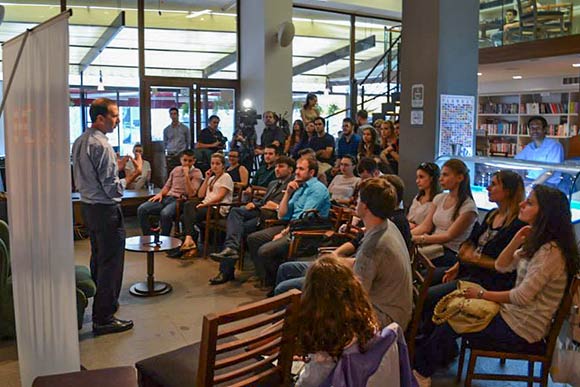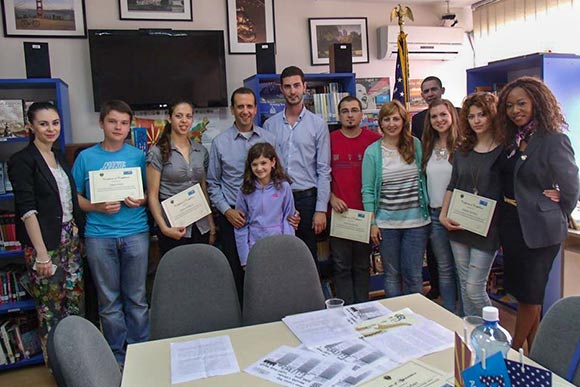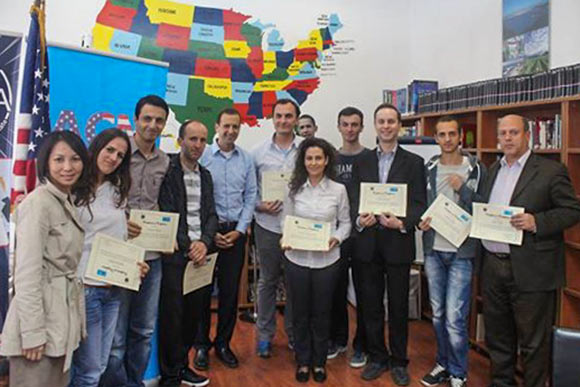massive open online course has the world looking at cle's innovation economy
When Michael Goldberg was in Hanoi, Vietnam in 2012 on a Fulbright Scholarship, he was asked by the Vietnamese government to conduct a seminar on how the already entrepreneur-focused country could become more like Cleveland. Goldberg, now a visiting assistant professor in the design and innovation department at CWRU’s Weatherhead School of Management, was surprised. They weren’t asking about Silicon Valley. They wanted to know about what Cleveland has done to encourage its entrepreneurs.
“They could learn from organizations like JumpStart and Third Frontier,” he recalls thinking. “Show what Cleveland has done over the last 10 years to support entrepreneurs. It takes years, if not decades to put the mechanisms in place to support entrepreneurs.”
Goldberg taught a weeklong seminar for the Vietnamese National Agency for Technology Entrepreneurship and Commercialization, emphasizing in his blog post that “in transitioning markets where there is not a robust entrepreneurial ecosystem financed by the private sector, government officials, donors and business leaders need to experiment with creative approaches to support the growth of entrepreneurs.”
With Cleveland’s thriving and supportive entrepreneurial environment on his brain, Goldberg returned to CWRU with an idea for a Massive Open Online Course (MOOC) – an online interactive course that is open to the world.
In April, Goldberg launched “Beyond Silicon Valley: Growing Entrepreneurship in Transitioning Economies.” The MOOC looks at how Cleveland has supported the growth of entrepreneurship by pooling funding from government, donors and the private sector over the last 10 years.
Apparently, at a time when both Cleveland and Ohio lag behind the rest of the U.S. in terms of overall job growth, the world is interested in what Cleveland is doing. That's because Cleveland has a growing tech sector and programs like Third Frontier and organizations such as Jumpstart are being lauded for helping spur entrepreneurship. The course has 36,000 registered students from 183 countries and has been translated into 10 languages, making it the top translated course on Coursera. The second six-week session wrapped up in November.
“We really didn’t know what to expect,” says Goldberg about the MOOC. “Some participants are more active and some are more observers. The good news is the students themselves carry it.” The participants include entrepreneurs, representatives from local, national and regional governments around the world, and even U.N. representatives and people from NGOs. In fact, 10 foreign U.S. Embassies have hosted Meetups around the class.
Lively discussions have occurred through Skype, Facebook and video around the world about opportunities for new businesses and how entrepreneurship efforts can be supported. “I think it actually worked well as something to have discussions around,” says Goldberg. “Our own experience in Cleveland has relevance for other people of the world.”
And what does Goldberg see as the lessons Cleveland has to offer? “It’s not just 'here are 10 things you have to do,' it’s more a 'here’s what we did,'” he says. “It’s a strong story of where do you go when you have nowhere to go but up.”
Even though the class is over, users can still access it. Goldberg also plans on offering the MOOC again in the spring.




